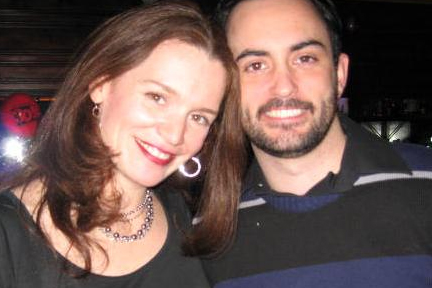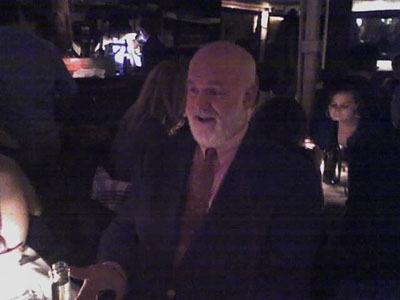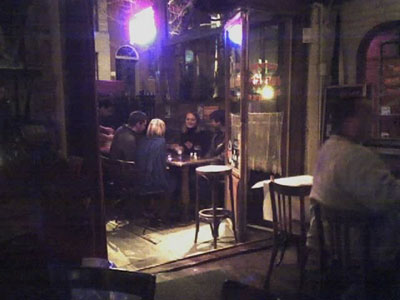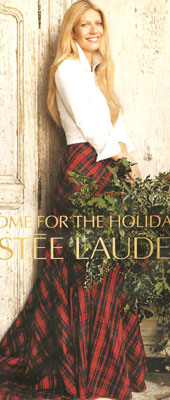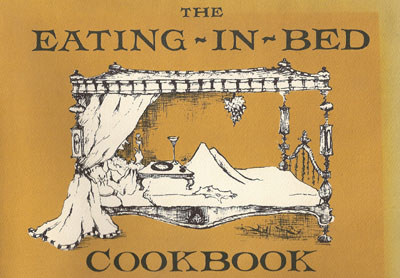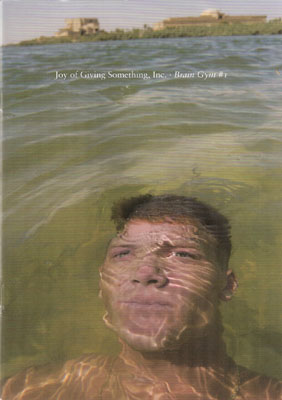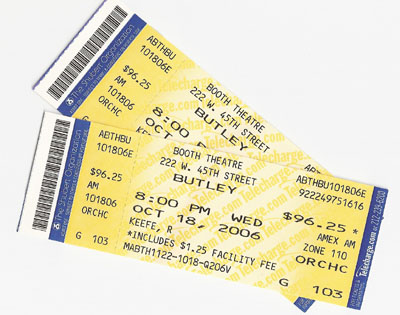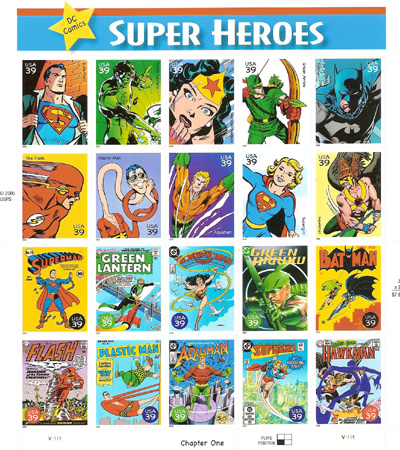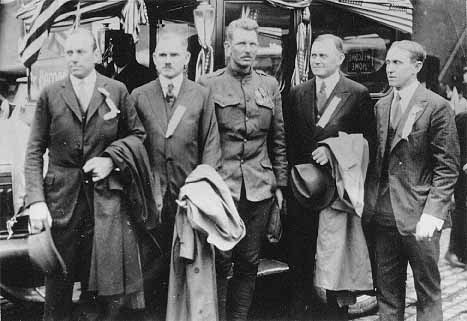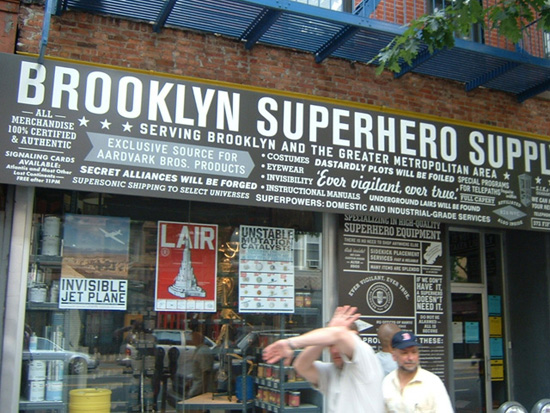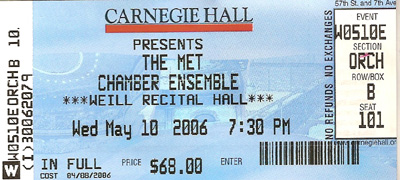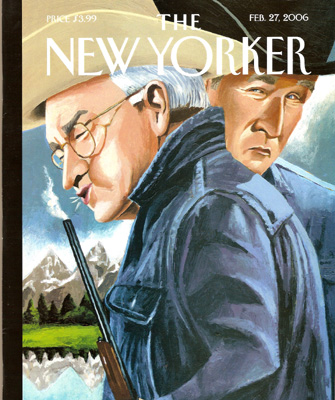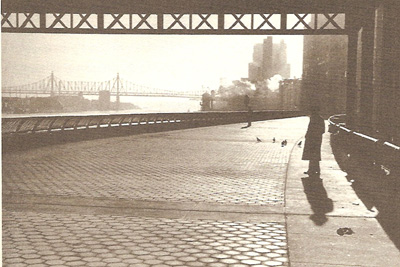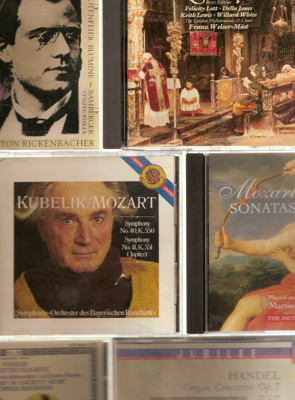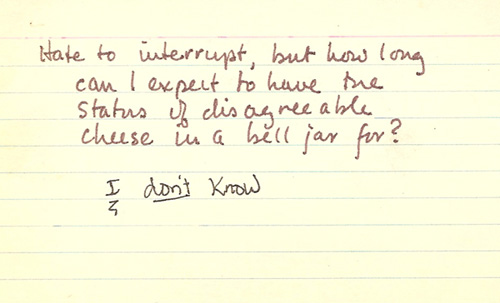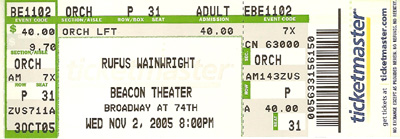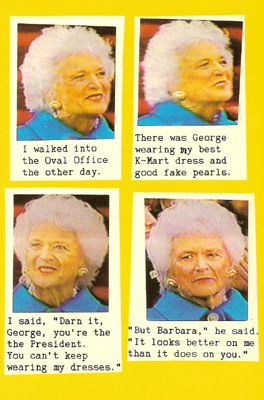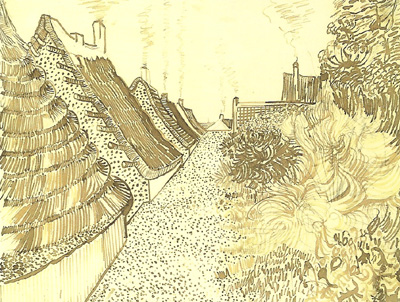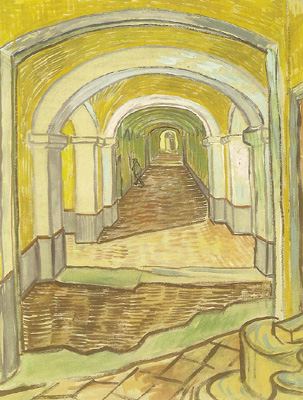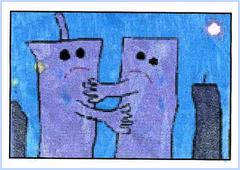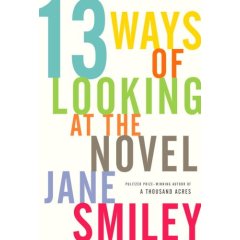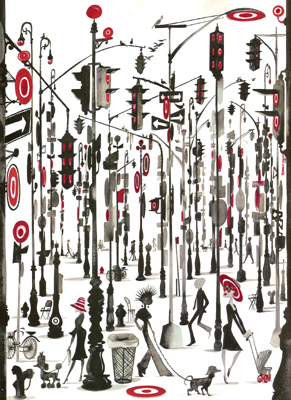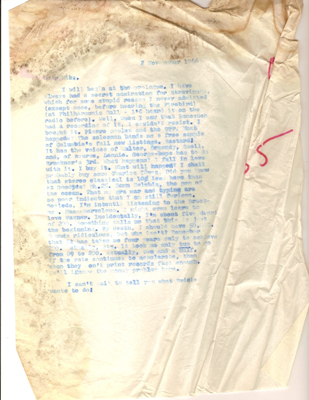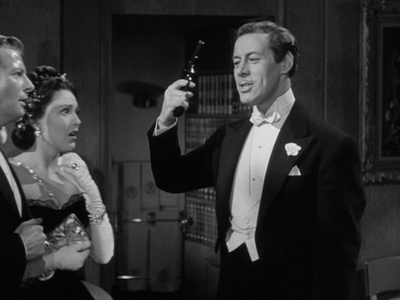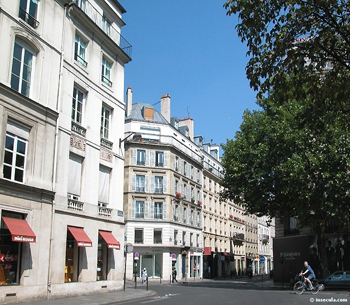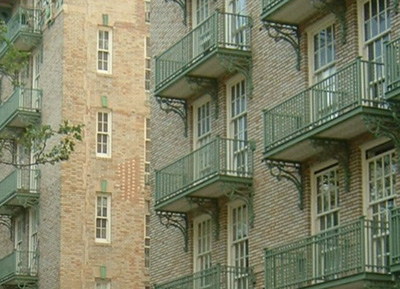The problem was my water bottle. From now on, I'm going to
carry chilled bottles of Poland Spring. No more Rubbermaid quart bottle with
retractable drinking straw, wrapped in a ragg sock from Bean's. That works fine
at home, but there's no need to screw the top on real tight when I'm
going from one table to another. Tilted in my Tumi shoulder bag, however...
I noticed the leak on the crosstown bus. All of sudden, my
right thigh was cold and damp. When I looked, the puddle in the bottom of the
main compartment was disturbingly reminiscent of A Night to Remember. I
quickly checked the small front pouch where the phone and the camera were
stowed. They were fine. I fretted my way across Central Park and the Upper West
Side. In the IRT station, I decided that I had to dump the water out. I emptied
the main compartment - and thank heavens I didn't lose the camera, too. I didn't
realize that the phone had tipped out, thanks to my failing to re-zip the pouch,
into the rubbish, until I was on the train.
So I arrived at Deluxe without a phone. Deluxe is a great
old-fashioned hamburger place (I'm sure they'd prefer me to mention their more
sophisticated dishes) on Broadway between 113th and 114th. To the hostess, I
explained that I was the first of a party of two to arrive. She nicely told me
to come back when the other party arrived. So I stood outside and read Sonata
for Jukebox, standing amid the deserted café tables under the awnings. "Wet"
was clearly a theme for the day; it had rained very heavily and the tables were
dripping. I stood and I stood, feeling more and more like a Wooden Indian,
wondering how the hell I would ever know if something happened to interfere with
Ms NOLA's plans to meet me at 1:15. I did think about jumping ship. There was
nothing else to do. Nobody has phones for under-accessorized idiots to use in
case of emergency. If I say that I felt stupid and impossible, that might risk
overstatement, because when I used to feel stupid and impossible I acted out.
Perhaps I have outgrown acting out.
At 1:35, the hostess, who may have come to the same conclusion
about my ornamental allure, came out to offer me a seat, which she carefully
wiped dry. When I told her that I had lost my cell phone, she blinked, but did
not offer the use of hers - meaning the one at her little desk. Smiling nicely,
she murmured me into the little plastic chair and went back inside.
Ms NOLA arrived minutes later - in fewer than five. She had
been trying to reach me, of course, to say that she'd be a little late. She also
had M le Neveu with her. That was a pleasant surprise; Ms NOLA had come from
dropping off her weekend things at his place on Claremont Avenue. Well, it was
pleasant for me. And for Ms NOLA, evidently. But M le Neveu was dissatisfied
about something - about being awake, I think. He looked the way I used to look,
until very recently, when I did something totally dumb, like dump my cell phone
in the IRT's garbage.
Presently it was time to head north. M le Neveu walked us down
Broadway to the 110th Street station and bid adieux. It had occurred to me, late
the night before, to do a little research about subways, because, to tell the
truth, I had never before gone to the Cloisters from my apartment by public
transportation. All I knew was that the right stop was on the IND line, meaning
that a transfer would be necessary at some point. The map told me that this
transfer would take place at 166th Street, which is the station that serves
Columbia-Presbyterian Hospital (as it used to be known). But I ought to have
done a little more research. At what station, exactly, should I get off the C
train? For I was sure that it was the C that I would need to catch - error
numero uno.
I realized, as Ms NOLA and I headed uptown, that I had resisted
visiting the Cloisters since giving up the car seven years ago because of the
subways. The voyage seemed Odyssean in complexity. Which is total, Upper East
Side piffle. The actual ease of the connections doesn't mean, however, that I
didn't get off at the wrong station. Consulting a map on the train that I really
couldn't read, because someone large and projecting was sitting underneath it, I
was concerned so determined to avoid getting off at Dyckman Street that I
hustled us off the train at 181st Street, nine blocks south of the 190th Street
Station, which is conveniently situated opposite the entrance to Fort Tryon
Park, dans lequel se trouve le Musée des cloîtres.
So, we walked.
The second time I went to the Cloisters, I was taking a
somewhat older girlfriend whom I wanted to wow. She suggested taking the train.
But my parents, both born in Iowa, told me never ever to set foot in a
subway. By the time the bus pulled up to the museum, it was closed.
I worried a little about this on Friday. It was past three...
And the entrance to Fort Tryon Park is at no mean distance from
the Cloisters. But first, let me tell you why I didn't want to end up in Dyckman
Street.

Here is a photograph, taken by Ms NOLA, of a pirate boat on the
Hudson. It actually looks like something Henry Hudson might have captained. See
how small it is in the wide river? See how high up we are, as if looking down
from a great height? That is northern Manhattan. It gets higher and higher as
you approach the tip - but not everywhere. Some parts of it are at "ground
level." Dyckman Street is such a place. To climb from Dyckman Street to the
Cloisters would probably have invoked EMS assistance.
So, we walked, from 181st Street. A very nice lady, sensing my
confusion, asked us if we needed help. She pointed us on our way, a way I hadn't
been on since I was eighteen. All the way, I was thinking about how Ms NOLA must be
laughing inside, remember the tales that her mother, Mme NOLA, had told her
about my reliability as a guide to the Metropolitan Museum. Never has my
performance been so disgraceful as it was on the day that I escorted Mme NOLA
through the Chanel show. The only salve to my ego was to show her the Sargents,
which are genuinely unfindable if you're looking for them but haven't seen them.
We got to the Cloisters in plenty of time. Having walked by the
subway station that I remembered from greener years, we knew that we would not
have such a long walk back. But the air of flusteration persisted. I nearly got
off the IRT at 96th Street.
*
The Cloisters was, above everything else, supremely familiar.
As a teenager, I had simply memorized it, as teenagers do, and there were
moments when it felt odd to be in such a well-known place - given that I had
visited it only three times at most in the past thirty years. Almost everything
was where it had always been. Little changes were much appreciated: the Treasury
was closed for renovations, but the museum's three most important illuminated
manuscripts had been moved upstairs, to what is now called "the Campin Room."
(In my day, it was "the Spanish room, but it's still where the great
devotional altarpiece
hangs.) This was the only really cool, not to say cold, room in the museum, many
of whose chambers and corridors sported standing electric fans - always the
sign, nowadays, of breakdown.
But I was a little bit too awed by simply being in the
Cloisters to appreciate it, if that makes any sense. Playing cicerone to Ms NOLA
is my favorite indoor sport, but I was completely thrown off by the closure of
the Early Gothic Hall, which meant that I could not conduct a kosher
tour, proceeding from one medieval epoch to the next. The world, at the
Cloisters, was out of whack. But then, it was August.
So what I'm going to remember from this particular trip - not
that I'll know that I'm not remembering the museum itself - is the
afternoon in the country afforded by a walk through Fort Tryon Park. The only
sound to reach us from beyond the park's precincts was the wail of MetroNorth
trains heading through Riverdale, and that was pretty distant. What we heard up
close was a chorus of crickets that I'd almost given up on. The park thrummed
with country sounds and smells that I'd too long been without, and knowing that
they were right here on my little island made me very happy.
I missed the old people, though. When I was a kid, the park was
filled with well-dressed men and women in their eighties, sitting on benches
that surveyed the Hudson far below. It was a little slice of mitteleuropa.
But the gardens weren't so bountiful in those days; now they're prize-winning perennial
borders (or ought to be). And Ms NOLA mentioned that on her last trip through
the park, last fall, she had seen a lot of elderly people with their caregivers.
A completely different picture. In the old days, there were no caregivers, only
upright men and women who could still take care of themselves. It was a less
merciful world than ours. Sharp-looking, but I wouldn't go back.



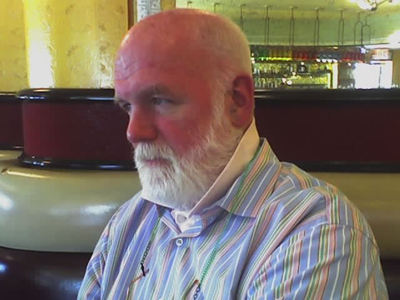
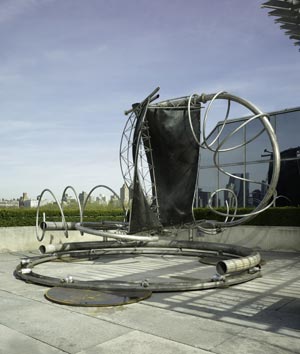

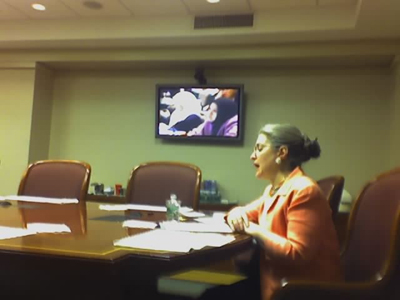
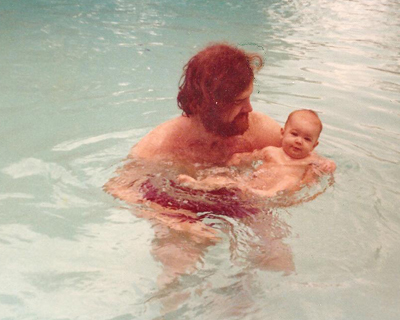
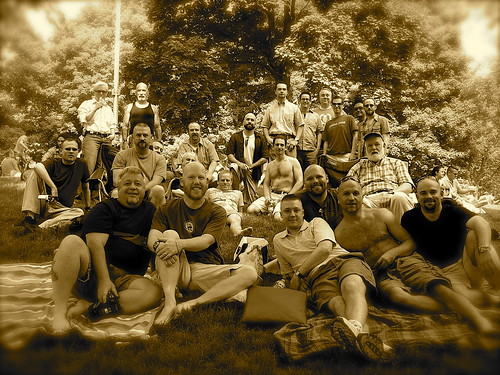




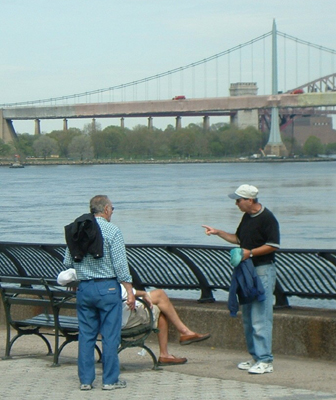
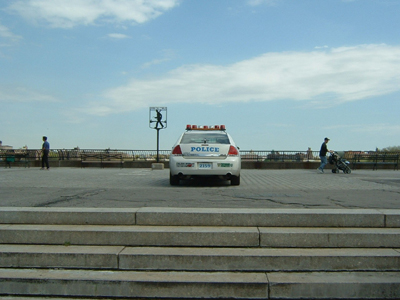






 ;
;
